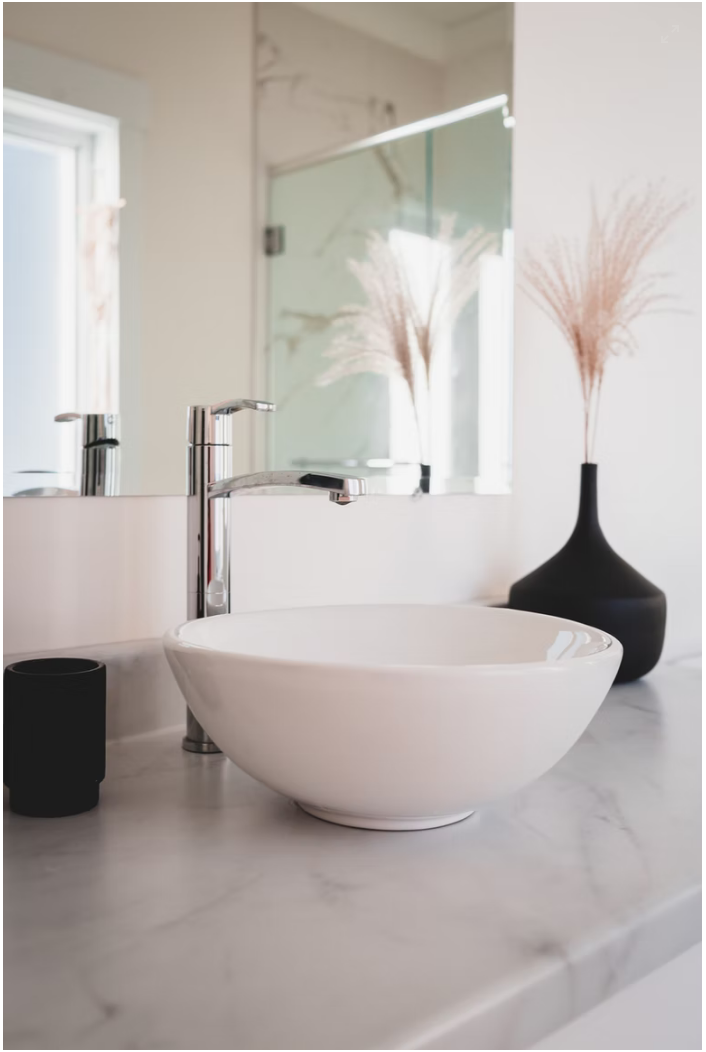Does A Granite Countertop Need to Be Sealed?

Granite is a popular choice for kitchen worktops because of its beautiful natural look, durability, resilience, and ease of cleaning. However, do you need to seal it in order to preserve its natural beauty and prolong its life? Or is sealing the worktop just an unnecessary step?
This article discusses these questions around granite countertop, read on to find out more!
Do I Have To Seal My Granite Countertop?
Technically, the answer to this question is no, but only because it is your countertop and you can choose to do what you like with it. However, if you don’t seal your granite, you are playing with fire, metaphorically speaking. This is because unsealed granite is prone to staining and damage, more so than granite that is safely sealed.
So, while you don’t necessarily have to seal your granite countertops, we recommend that you do.
Why Should I Seal My Granite?

Sealing granite helps prevent liquids from seeping into the stone and causing damage. Granite is a porous natural stone, which basically means that things are more likely to damage and stain the stone.
What Happens If You Don’t Seal Your Granite Countertop?
If you decide not to seal your granite countertop, you could be left with unpleasant stains on your worktops. Stains and damage can be caused by a number of factors, including.
- Food and grease. Unsealed natural stone will readily absorb food and liquids, which can lead to deep, well-developed stains. Stains can occur quickly, even if you can catch spills quickly. Red wine and grape juice, two highly-pigmented liquids, can leave a dark spot on your otherwise immaculate countertop.
But the worst part is that liquids aren’t your only concern. For example, if you put a plastic box of fresh strawberries on your countertop, you could end up with a red square on your countertop.
- Cleaning products. Dozens of household cleaning products should not be used on natural stone, whether sealed or not. Unsealed stone is more susceptible to damage from cleaning products. Certain products, such as those containing citrus, can erode the calcium in the stone, leaving pits and inconsistencies in the stone.
Chemicals that penetrate deep into the stone can damage the finish and even discolor its natural appearance. Sealers help prevent this damage by getting into tiny cracks and fissures, sealing them up and preventing liquids from penetrating the stone.
Make sure you only use cleaning products that are approved for use on natural stone, even if your worktop is sealed. Although the sealer should help to resist chemicals, specific chemical cocktails can penetrate the sealer and damage the stone.
- Water. You may not realize that water, of all things, can be the nemesis of your natural stone worktops. When the stone is not sealed, water can penetrate the stone and leave a watermark residue. This can result in the stone looking perpetually dirty, which is a nuisance in itself.
When the stone is properly sealed, it will repel liquids and prevent them from penetrating the stone.
How Often Does Granite Need To Be Sealed?

There is no set rule as to how often granite needs to be sealed. Some experts will tell you it needs to be sealed every 6-12 months, while others recommend sealing every 3-5 years. Yes, it makes a big difference.
How often you should seal your granite depends on the granite itself. Porosity and absorption rates will tell you all you need to know. Generally speaking, the lighter the stone, the more often it needs to be sealed. However, this is not a one-size-fits-all rule, as all stones are different.
How Do I Know If My Granite Has Been Sealed?

Fortunately, you can easily test your granite countertop to see if it needs to be sealed or has been sealed. All you need is a few drops of water and a few minutes of your time.
Start by sprinkling a few drops of ordinary tap water directly onto the granite. If the stone absorbs the water and turns black within four minutes, you need to seal the countertop. After you have resealed the countertop, try the water test again. This will help you determine if the surface is effectively sealed or if it needs a few more coats.
As a general rule of thumb, you should do a water test on your granite every few months to determine how often you need to reseal the countertop.
How Much Does It Cost To Seal Granite?
Sealing granite is not an expensive project, provided you do it yourself. If you choose to hire someone else to handle the job for you, it can get a little more expensive.
You will need a number of materials to seal your granite countertops. The national average cost of these materials is $0.19 per square foot. Depending on the size of your countertop, it can range from a few dollars to around $50.
If you hire a professional to seal your granite, you could end up paying $150 to $300, which is the average labor cost to reseal granite.
Can You Seal Your Granite Yourself?
Here’s the good news: you don’t have to shell out hundreds of dollars to have someone reseal your granite countertops. The process isn’t complicated, so if you’re willing to do it yourself, you can save a little money.
The most important thing is to recognize when it’s time to seal your countertops again. You don’t want to over-seal as too much sealer can leave a hazy residue. Also, make sure you use a granite sealer that is specifically designed for natural stone.
 ARCORA FAUCETS
ARCORA FAUCETS
